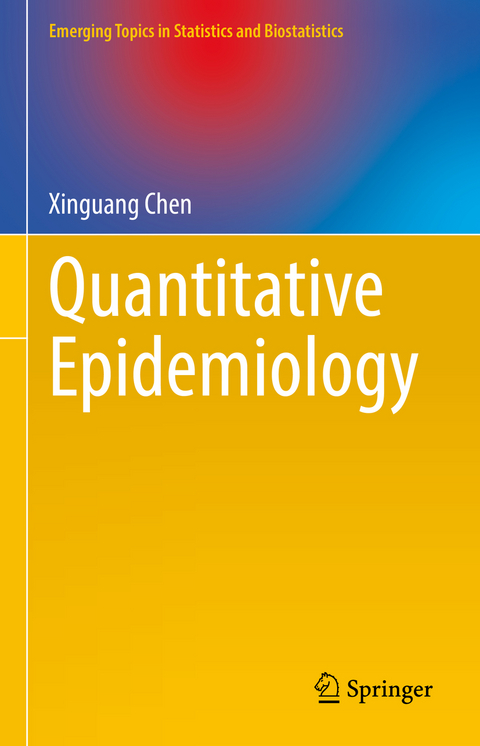
Quantitative Epidemiology
Springer International Publishing (Verlag)
978-3-030-83851-5 (ISBN)
This book is designed to train graduate students across disciplines within the fields of public health and medicine, with the goal of guiding them in the transition to independent researchers. It focuses on theories, principles, techniques, and methods essential for data processing and quantitative analysis to address medical, health, and behavioral challenges. Students will learn to access to existing data and process their own data, quantify the distribution of a medical or health problem to inform decision making; to identify influential factors of a disease/behavioral problem; and to support health promotion and disease prevention. Concepts, principles, methods and skills are demonstrated with SAS programs, figures and tables generated from real, publicly available data. In addition to various methods for introductory analysis, the following are featured, including 4-dimensional measurement of distribution and geographic mapping, multiple linear and logistic regression, Poissonregression, Cox regression, missing data imputing, and statistical power analysis.
lt;p>Professor Xinguang Chen is a fellow of the American College of Epidemiology, a professor of epidemiology with tenure at the University of Florida, and a chair professor at Wuhan University Global Health Institute. He serves as coeditor-in-chief of Global Health Research and Policy, deputy editor-in-chief of Global Health Journal, coeditor of Statistical Methods for Global Health and Epidemiology (with D.-G. Chen, Springer 2020), and advisory board member of the WHO-China Information Collaboration Center at People's Health Publication House of China. Professor Chen is well known for his long standing in quantitative method research and graduate teaching in public health, medicine and health behaviors. He has published 300+ manuscripts in peer-reviewed journals, 5 authored books, and a list of book chapters and encyclopedia entries.
1. Introduction to Quantitative Epidemiology.- 2. Characters, Variables, Data, and Information.- 3. Quantitative Descriptive Epidemiology.- 4. Causal Exploration with Bivariate Analysis.- 5. Confirmation with Multiple Linear Regression.- 6. Multivariate Analyses of Categorical and Counting Data.- 7. Multivariate Analysis of Time to Event Data.- 8. Simultaneous Analysis of Two Correlated Predictors.- 9. Special Issues with Quantitative Epidemiology.- 10. Power Analysis.
| Erscheinungsdatum | 25.02.2022 |
|---|---|
| Reihe/Serie | Emerging Topics in Statistics and Biostatistics |
| Zusatzinfo | XX, 336 p. 200 illus., 170 illus. in color. |
| Verlagsort | Cham |
| Sprache | englisch |
| Maße | 155 x 235 mm |
| Gewicht | 678 g |
| Themenwelt | Mathematik / Informatik ► Mathematik ► Wahrscheinlichkeit / Kombinatorik |
| Studium ► Querschnittsbereiche ► Epidemiologie / Med. Biometrie | |
| Studium ► Querschnittsbereiche ► Prävention / Gesundheitsförderung | |
| Schlagworte | bivariate analysis • causal inference • Cox Regression • Descriptive study • etiology • existing data • exploratory analysis • geographic area-based rate • linear regression • Logistic Regression • multivariate analysis • poisson regression • population-based rate • preliminary data • Quantitative Methods • sample weights • SAS Programs • secondary data analysis • Survey methods • Survival Analysis |
| ISBN-10 | 3-030-83851-X / 303083851X |
| ISBN-13 | 978-3-030-83851-5 / 9783030838515 |
| Zustand | Neuware |
| Haben Sie eine Frage zum Produkt? |
aus dem Bereich


